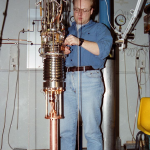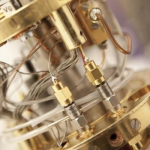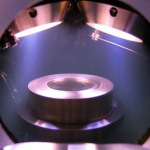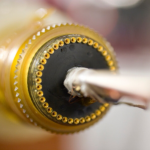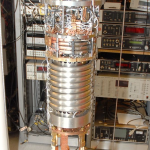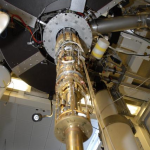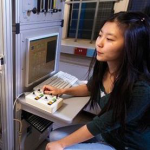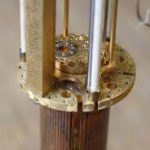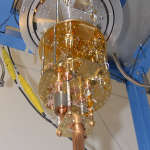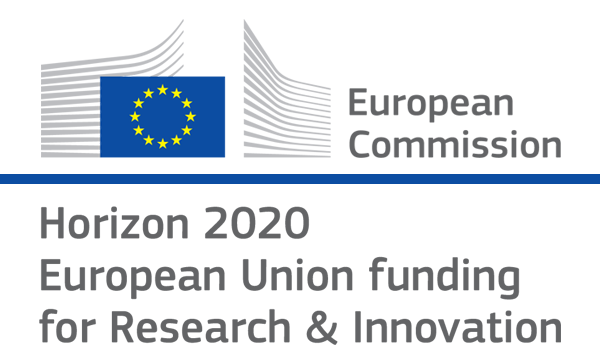

- Photon Transport in a Bose-Hubbard Chain of Superconducting Artificial Atoms
G. P. Fedorov et al., Phys. Rev. Lett. 126, 180503 (2021) - Path-Dependent Supercooling of the
He3 Superfluid A-B Transition
Dmytro Lotnyk et al., Phys. Rev. Lett. 126, 215301 (2021) - Superconductivity in an extreme strange metal
D. H. Nguyen et al., Nat Commun 12, 4341 (2021) - High-Q Silicon Nitride Drum Resonators Strongly Coupled to Gates
Xin Zhou et al., Nano Lett. 21, 5738-5744 (2021) - Measurement of the 229Th isomer energy with a magnetic micro-calorimeter
T. Sikorsky et al., Phys. Rev. Lett. 125 (2020) 142503
Current Sensing Noise Thermometry: A fast practical solution to low temperature measurement
Casey, A., Saunders, J., Lusher, C., Batey, G., Shibahara, A., Levitin, L., Arnold, F., van der Vliet, H., Drung, D., Schurig, T., Cuthbert, M. and Matthews, A.,We describe the design and performance of a series of fast, precise current sensing noise thermometers. The thermometers have been fabricated with a range of resistances from 1.290 down to 0.2 mΩ. This results in either a thermometer that has been optimised for speed, taking advantage of the improvements in superconducting quantum interference device noise and bandwidth, or a thermometer optimised for ultra-low temperature measurement, minimising the system noise temperature. With a single temperature calibration point, we show that noise thermometers can be used for accurate measurements over a wide range of temperatures below 4 K. Comparisons with a melting curve thermometer, a calibrated germanium thermometer and a pulsed platinum nuclear magnetic resonance thermometer are presented. For the 1.290 Ω resistance we measure a 1 % precision in just 100 ms, and have shown this to be independent of temperature.
J. Low Temp. Phys, 175, 764-775 (2014)
doi: 10.1007/s10909-014-1147-z

